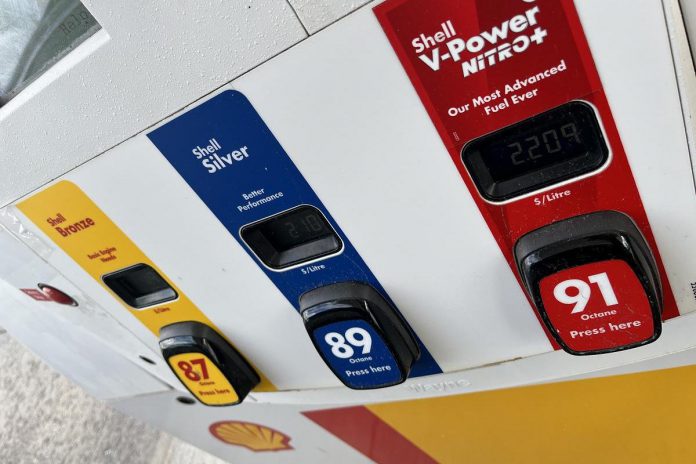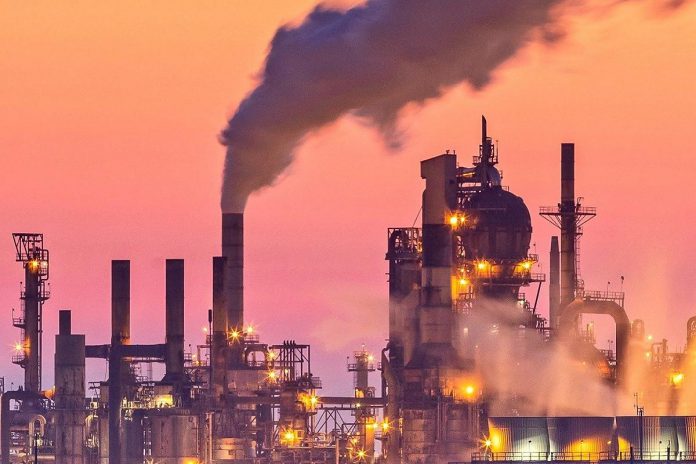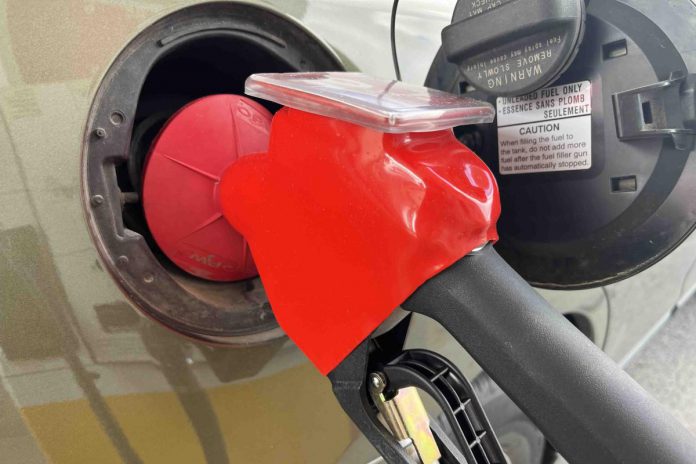
Let’s take a trip to the Hague District Court in the Netherlands, back to May 2021. In an unprecedented landmark ruling, Judge Larisa Alwyn ruled that Shell — the multi-national oil and energy company — must reduce its emissions by 45 per cent below 2019 levels by 2030.
This is the first time in history a judge has ordered a large, private company to reduce its emissions. The ruling establishes that Shell’s mitigation strategy is “not concrete,” and is responsible not only for its scope one and two emissions, but also for its scope three emissions.
Scope one and two are the emissions an organization generates due to the fuels it uses to operate its factories and its vehicles. Scope three includes all other emissions linked to an organization’s activities.
In the ruling against Shell, scope three includes all the emissions caused by consumers around the world buying and burning Shell’s fossil fuels. The fuels people like you and I use in our cars, boats, tractors, and, yes, even leaf blowers — all those scope three emissions account for over 90 per cent of Shell’s emissions.
This court ruling found these scope three emissions threaten the “right to life” and “undisturbed family life” that are protected in the European Convention on Human Rights.
Ben van Beurden, CEO of Shell, responded that this ruling “does not help reduce global CO2 emissions.”

“The energy transition is far too big a challenge for one company to tackle,” van Beurden said. “No one country or even one continent could pull this off. We need to work together, with society, governments, and our customers to achieve real, meaningful change in the worldwide energy system. And this change must address the demand for carbon-based energy, not just its supply.”
Van Beurden illustrates his argument about supply, demand, and working together with this hypothetical example:
“Imagine Shell decided to stop selling petrol and diesel today. This would certainly cut Shell’s carbon emissions. But it would not help the world one bit. Demand for fuel would not change. People would fill up their cars and delivery trucks at other service stations.”
In March 2022, Marjan van Loon, President-Director of Shell Nederland, made a similar argument about supply and demand while explaining the decision to appeal the court’s ruling:
“The judgment holds Shell responsible for reducing the emissions of its customers from the use of its products. In particular, we question how Shell can have a legal obligation to reduce carbon emissions we do not control from customers who are not under a similar legal obligation to reduce their emissions.”
I’d like us to consider three myths in van Beurden’s and van Loon’s arguments about this case.
Myth #1 – Fossil fuel companies are not legally accountable for C02 emissions

Van Beurden and van Loon seem to be asserting that this court case is the opposite of working together to bring about the real, meaningful change we need urgently.
In this case, a team of people from multiple large organizations worked together for more than six years and with over 17,000 plaintiffs. They demonstrated successfully that Shell has known for decades about the dangerous impacts of its emissions, and that Shell also knew its emissions reductions plans were insufficient.
Shell is not alone in this behaviour. Many fossil fuel companies have been working actively for decades — with full scientific knowledge of their contributions to climate change — to increase supply, create doubt about climate change, and delay the phasing out of the fossil fuel industry.
This unprecedented legal case demonstrates that many people are working together effectively to bring about social and governmental change through legal accountability measures like this one.
Myth #2 – Legal rulings against fossil fuel companies will not reduce CO2 emissions
Van Beurden and van Loon claim that legally requiring Shell to reduce its emissions does not help reduce global CO2 emissions.
This claim also appears to be invalid. The most recent report from the Intergovernmental Panel on Climate Change (IPCC) is the first of its kind to mention the growing impact of grassroots climate action, as investigative climate journalist Amy Westervelt observed in her Drilled podcast.
“Litigation as a tool in the activist toolbox … has exploded in recent years as well,” Westervelt said. “There are now more than 1,800 climate cases making their way through courts around the world.”
This court case against Shell is one example of a larger social and legal movement that is in fact helping to change policy and reduce global CO2 emissions.
Myth #3 – The fossil fuel economy is demand driven

Van Beurden implies that the underlying problem is that the fossil fuel economy is demand driven, as opposed to supply driven.
“There are lots of myths about the way we understand the economy,” explained environmental economist Julia Steinberger in an interview with Westervelt. “One of the myths is that it is demand driven, when it is not. It is supply driven.”
“Everybody wants economic growth, so everybody wants demand to increase and that’s it,” said Steinberger. “After a certain phase … you start having overproduction and you have to find an outlet for that. Otherwise, you get economic crises. And the outlet for that is various kinds of overconsumption or things like planned obsolescence.”
“The fossil fuel industry is using this fake narrative of demand-driven production to excuse their activities,” explained Steinberger. “But as soon as you look at demand, the story crumbles.”
Finding ways to reduce demand is an important part of the work that people like you, and organizations like GreenUP, do to address global CO2 emissions. Legal actions like this landmark case establish the need and responsibility to reduce supply.
Why do cases like this matter?
This ruling against Shell, and other cases like it, can create space for us to see and address the specific language that has contributed to denying the existence of the climate crisis and stalling effective climate action.
To learn more, check out these podcasts:
- Episodes #104 and #108 of the Outrage and Optimism podcast at outrageandoptimism.org featuring interviews about this legal case against Shell.
- Amy Westervelt’s Drilled podcast and transcripts oat www.drilledpodcast.com.



























